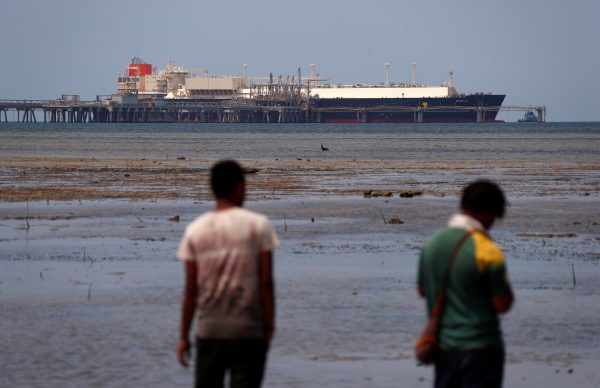Resources now account for over 80 per cent of PNG’s exports, a major increase from the 50 per cent level of the 1970s and early 1980s. An earthquake in February 2018 severely disrupted resource production for two months. It also exacerbated local concerns about liquefied natural gas (LNG) projects in the area and their four-year failure to pay royalties to landowner groups.
While production has since fully recovered and more effort is being made to identify landowners for payments, tensions remain in the Highlands region. Ongoing concerns about the legitimacy of the 2017 national elections add to this volatile mix, with rioters in the Southern Highlands capital of Mendi burning local courthouses and an Air Niugini plane in a post-election dispute.
PNG is possibly facing another resource boom. Although no final decisions were made, there were positive indications around November’s APEC meeting that two major LNG projects could commence. A Total-led project along with a third train on the Exxon-led project could double PNG’s current LNG production of 8 million tonnes per year. The PNG government is aiming for better fiscal terms from these projects after the disappointing revenue and foreign exchange flows from its last major resource project, PNG LNG.
With the next national election due in mid-2022, a resource construction boom that boosts the local economy from 2021 onwards would serve the O’Neill government well. In December 2018 a non-binding agreement to accelerate granting a lease for the US$2 billion Wafi-Golpu gold and copper mining project was also signed.
If these resource projects proceed, the risk of another ‘resource boom’ will require careful economic management. The government’s mishandling of the PNG LNG-led resource boom in 2014 left the country with an over-valued exchange rate, the largest budget deficits in its history and foreign exchange shortages that are crippling growth in non-resource parts of the economy.
The country’s economic institutions are in decline. PNG has slipped back to being the only APEC country classified as a ‘fragile situation’ state, according to the World Bank and Asian Development Bank (ADB), because of worsening economic management. Official government statistics are fiddled, with a gap of nearly 20 per cent between the IMF’s and the PNG government’s GDP estimates.
PNG Treasurer Charles Abel, appointed following the re-election of Prime Minister Peter O’Neill in 2017, is a credible spokesperson for the government. His credibility helped PNG raise a US$500 million sovereign bond in 2018. Key fiscal strategies were being put in place, including better control of the budget deficit, raising revenues and better debt management.
But Prime Minister O’Neill sometimes overturns the Treasurer’s sensible decisions at critical moments. In late 2017, O’Neill over-turned planned cuts to politically sensitive electoral funds that accounted for over 5 per cent of the national budget. In November 2018, contrary to agreements made with the World Bank for budget support and the documents used for building support for the sovereign bond, the Treasurer delivered a 2019 Budget that spent nearly all the 10 per cent revenue windfall from higher LNG prices.
The sovereign bond and budget support from the ADB and World Bank are providing temporary but only band-aid relief to some of the foreign exchange shortages that have become the greatest barrier to business according to local CEOs. The government is planning to rapidly increase external debt to over 50 per cent of all public debt, a risky choice for a country with an over-valued exchange rate and dependent on volatile resource prices.
APEC provided an opportunity to promote greater economic diversification and integration. While some big promises were made, such as an agreement between the United States, Australia, Japan and New Zealand to spend US$2 billion to improve electricity access in PNG, it is unclear if these commitments involve additional assistance or are just a diversion of funds from other areas. The PNG budget, released just five days before the APEC meeting, included significant tariff increases to protect the local manufacturing sector — a move that clearly runs counter to APEC’s aim to promote trade in the region.
The PNG government is giving greater attention to the economic sector, with an emphasis on agriculture. But the pattern of this support appears to be a 50 per cent equity injection into large-scale private business entities, tariff support and non-tariff barriers. PNG did this in the 1980s with its sugar and cement industries, and the results were disappointing. There was little local production and high tariffs of 30 per cent remained in place.
The constitution prevents any votes of no-confidence against Prime Minister O’Neill between the July 2017 election and February 2019. O’Neill is proving to be a canny political master and may well survive any such motions throughout the remainder of 2019 despite his growing unpopularity and poor policy calls on sensitive issues. At the same time, he is a poor economic master and even with a possible resource boom the standard of living of the vast majority of PNG’s nearly nine million people will continue to decline.
Paul Flanagan is Director of PNG Economics and an Associate at the Development Policy Centre, The Australian National University.
This article is part of an EAF special feature series on 2018 in review and the year ahead.

